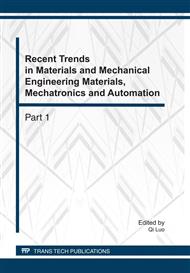p.1845
p.1851
p.1857
p.1863
p.1869
p.1875
p.1880
p.1886
p.1892
Parameterized Model Design and Extension for Principal-Agent Incentive Mechanism
Abstract:
Parameterized model of principal-agent incentive mechanism has been designed through mathematical analysis in this paper. The analysis of monitoring mechanism is introduced in the principal-agent incentive mechanism, which extends the theoretical framework of incentives. The results show that: monitoring mechanisms and incentive mechanisms are relevant and the interaction between them has a substitution effect. They can encourage or induce an agent to work hard. Therefore, incentive mechanisms and monitoring mechanisms should be taken into account in the process of compensation contract formation. The introduction of monitoring mechanisms not only has some innovations in theory, but also has great value in practice.
Info:
Periodical:
Pages:
1869-1874
Citation:
Online since:
May 2011
Price:
Сopyright:
© 2011 Trans Tech Publications Ltd. All Rights Reserved
Share:
Citation:


